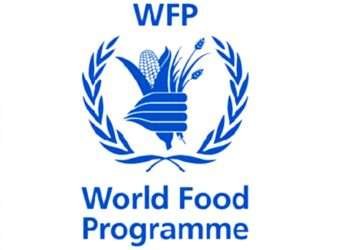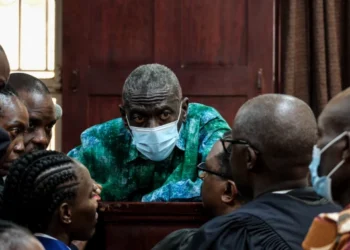For more than 500 days, the people of El Fasher in Sudan’s North Darfur have endured a siege that has pushed children to the edge of survival. The United Nations Children’s Fund (UNICEF) warns that malnutrition, disease, and relentless violence are now claiming young lives daily.
An estimated 260,000 civilians remain trapped inside the city, including around 130,000 children who have been cut off from aid for over 16 months. Conditions inside the main camp for internally displaced people have become desperate, with families struggling to find food, medicine, and safety.
The Rapid Support Forces (RSF), locked in a brutal two-year struggle with Sudan’s military government, have sealed off all supply routes into the city. Since May last year, RSF fighters have maintained their siege, leaving El Fasher as the last major urban stronghold under government control.
UNICEF’s Executive Director, Catherine Russell, described the situation starkly: “We are witnessing a devastating tragedy – children in Al Fasher are starving while UNICEF’s lifesaving nutrition services are being blocked.”

New reports this week highlight yet another deadly episode. At least seven children were killed in an attack on the Abu Shouk camp for displaced families on the outskirts of El Fasher.
Since the siege began in May 2024, UNICEF has verified over 1,100 grave violations against children in the city. These include the killing and maiming of more than 1,000 children. At least 23 others have suffered rape, gang rape, or sexual abuse, while many have been abducted, recruited, or exploited by armed groups.
Health and education facilities have not been spared. Thirty-five hospitals and six schools have been attacked, leaving dozens dead or injured, including children.
The UN Office for the Coordination of Humanitarian Affairs (OCHA) echoed the warning, stating that the humanitarian situation across North Darfur is deteriorating further.
Catherine Russell reiterated UNICEF’s urgent call: “Blocking humanitarian access is a grave violation of children’s rights, and the lives of children are hanging in the balance.”
Dire Health Crisis Amid Cholera Outbreak
Medical services have collapsed as supplies run dry, forcing UNICEF to suspend its life-saving programs. Around 6,000 children suffering from Severe Acute Malnutrition (SAM) are now left untreated, placing them at imminent risk of death.
The absence of therapeutic food and medicine has already proven fatal. According to reports, at least 63 people – mostly women and children – died from malnutrition in just one week.
The crisis is worsened by Sudan’s worst cholera outbreak in decades. Since July 2024, more than 2,400 deaths have been recorded. Children, already weakened by hunger, are especially vulnerable to cholera and other waterborne illnesses spreading rapidly in overcrowded camps such as Tawila, Zamzam, and El Fasher itself.
UNICEF emphasized that urgent aid deliveries are necessary to save lives, reiterating its call for unimpeded humanitarian access. Catherine Russell made the appeal clear: “Children must be protected at all times, and they must have access to life-saving aid.”
The ongoing siege of El Fasher has now become a symbol of Sudan’s wider tragedy, where civilians, and children most of all, remain caught between violence, disease, and starvation, with little relief in sight.
READ ALSO: Authorities Demand Urgent Action as Typhoid Surges in Oti Region























